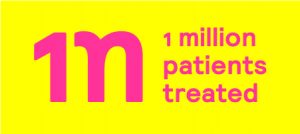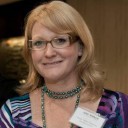The pandemic exposed health inequity and the consequences of living with overburdened healthcare systems. Whether it was lack of access to treatment in impoverished communities, lack of public trust, lack of access to critical medical technology, suffering the effects of an already overburdened healthcare system, or all of the above, Covid-19 did not impact us equally. As a colleague recently stated, ‘We may be in the same storm, but we are not all in the same boat.’
 We were extremely cognizant of this, when Equalize Health hit a significant milestone at the end of 2020. Our medical devices have now treated more than 1 million patients in over 70 countries, saving the lives of patients in the toughest of circumstances. In the midst of the pandemic though, the first question we asked ourselves was: How quickly can we reach the next million?
We were extremely cognizant of this, when Equalize Health hit a significant milestone at the end of 2020. Our medical devices have now treated more than 1 million patients in over 70 countries, saving the lives of patients in the toughest of circumstances. In the midst of the pandemic though, the first question we asked ourselves was: How quickly can we reach the next million?
To answer this question, we need to look not only at where global health and philanthropy have succeeded, but also where we have failed.And take these lessons to learn how we can strengthen the ecosystem, and accelerate progress to equitable health.
Over the last decade there has been substantial investment in early stage (seed) development of medical technologies. These investments have aided the development of diagnostics and medical devices that have the capacity to change and save lives. However, we know that too often people are not able to access the technology and healthcare they need. In reaction, we, as a sector, tend to double down on a few big idea solutions. In some cases, these investments improve access, but in others they fall short.
We may be in the same storm, but we are not all in the same boat.
So, why do some global health innovations scale and drive impact, where other, seemingly equally valuable innovations, do not? Maybe the answer lies in the early stages of development and in the type of ecosystem we now create. We offer the following key lessons from reaching this important milestone:
Be Inclusive: We must constantly lift our heads up from our day-to-day work, and ask, who are the users, the decision-makers, inventors, who are the designers, who are the leaders, and who are the funders? It’s not always who you think, and it’s always evolving. When we’re curious and inclusive, anything is possible.
Prioritize People + Place: Prioritize feedback from frontline health workers and learn from innovations in target geographies to illuminate the needs and problems that have not been solved. While access to medical technology is a real barrier, it’s often iterative product innovation that circumvents it – often in less time and with less resources.
Scale Starts at the Beginning: We need to fund early stage innovators that have shown they have an eye on scale from the beginning. We will continue to forge partnerships with pragmatic partners who have a history of getting things done and reaching last mile communities. We could never have treated a million patients without our partners in design, manufacturing, distribution, philanthropy, and more.
Stephanie Heckman is Director of Development at Equalize Health, and Mike Eisenstein is Director of Product Development.







Comments (0)